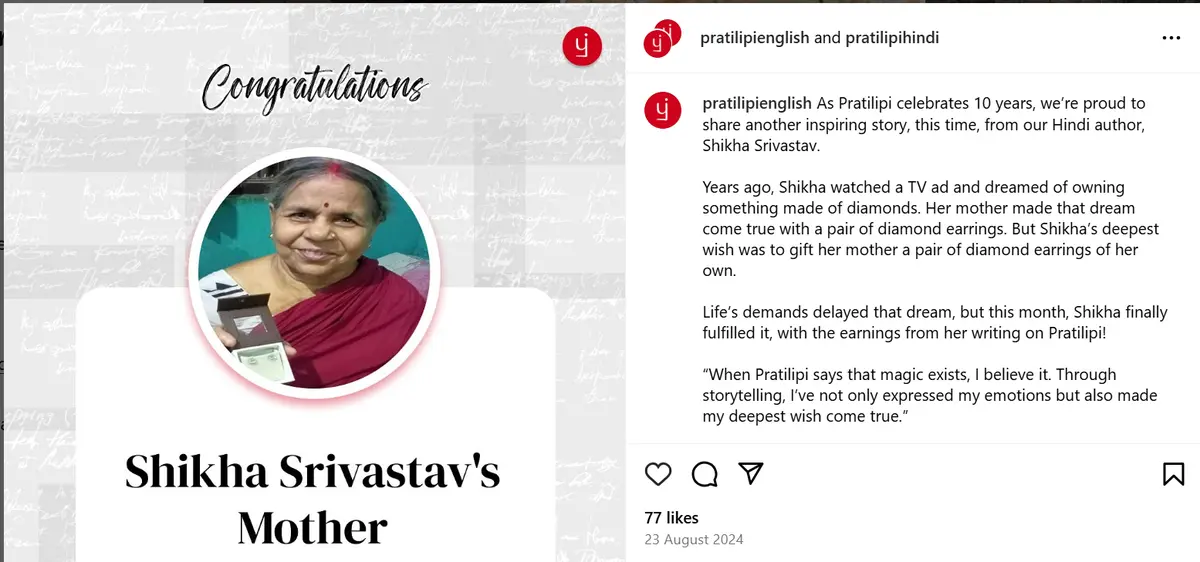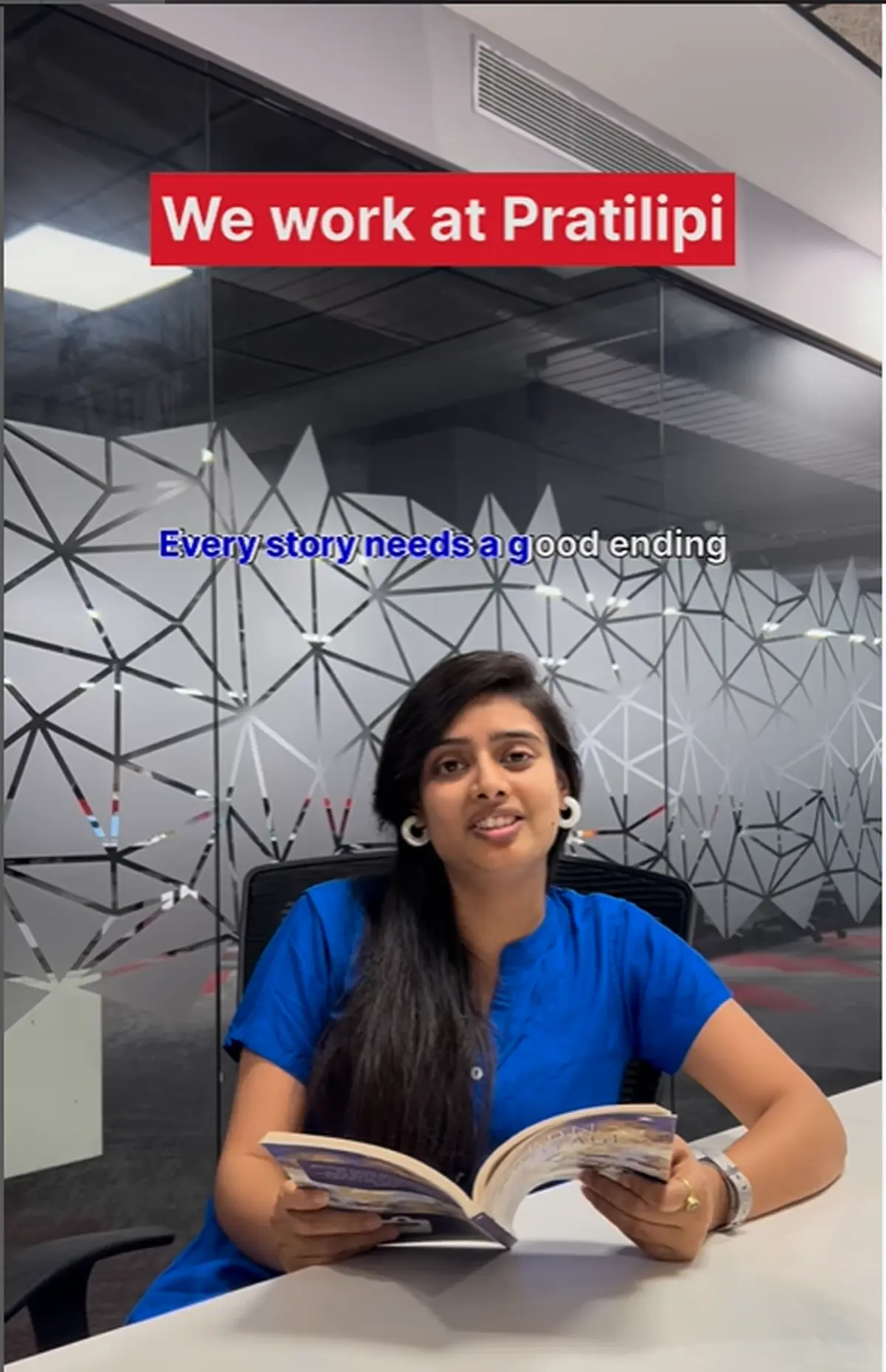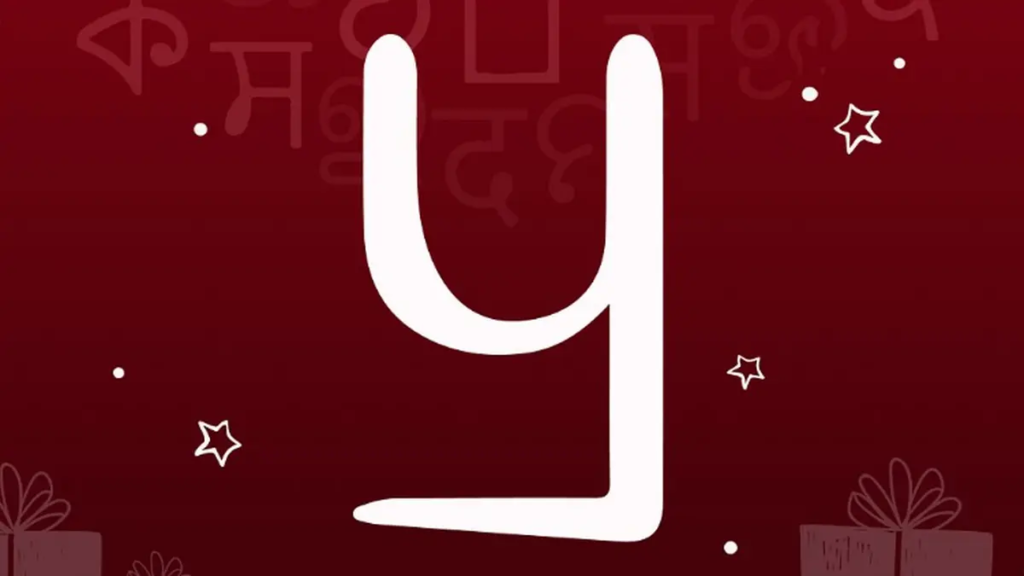The bustling streets of 19th-century Calcutta birthed “literature of the masses”—stories of, by, and for, the people—that was printed on cheap paper in the Battala area in the north of the city. While the elite tended to dismiss it as sensational, Battala literature, as it was called, captured the pulse of everyday life as nothing else could. The bold, unfiltered stories found their way into eager hands for just a few annas, democratising storytelling. Its modern-day counterpart would be online self-publishing and audiobook platforms like Pratilipi that are reshaping how stories are told and consumed in India today.
Pratilipi, founded in 2014 by Prashant, Rahul Ranjan, Sankaranaryanan Devarajan, Sahradayi Modi, and Ranjeet Pratap Singh, has nearly 10 million active readers today. It hosts over 1 million writers who have published 15 million stories till date. The stories are on a wide range of topics, though family dramas and romances are the most popular.
Vernacular storytelling
One of the reasons behind Pratilipi’s success is perhaps the fact that it offers stories in regional languages–Bengali, Hindi, Tamil, Malayalam, Marathi, and others–as well as in English. Obviously, the regional-language stories have a wider appeal. Authors retain full editorial control over their stories on the platform, but they must follow rules on plagiarism and other guidelines.

A Pratilipi social media post on its Hindi author, Shikha Srivastav.
| Photo Credit:
@pratilipienglish/Instagram
While Pratilipi might have helped bring down literature from its ivory towers by making it accessible to all, its writers hardly see themselves as revolutionaries. However, they do want to spread social messages through their stories.
Anjana Dhijesh (31) from Kozhikode in Kerala is one of the top-ranking authors on Pratilipi. A Malayalam writer with over 4.7 crore readers, she gained widespread attention for her novel Kashinathan, a family romance that stood out for its portrayal of transgender characters. “We know about the injustices faced by the transgender community. I read a lot about them, and some stories of resilience inspired me. I wanted to write something that portrays them as regular people—just like you and me,” she said. Like many on Pratilipi, she started out as a reader and soon transitioned into a full-time writer, earning a regular income through her published works.
Also Read | The life of a language
“I don’t know if I should call myself a professional writer,” she said in broken English, adding, “But I’m earning anything between 80,000 to a lakh through writing, so I guess I am one.” Dhijesh has a day job at a computer centre in Kerala.
Pratilipi witnessed a surge in readers and writers during the pandemic. “During the lockdown, we couldn’t visit libraries, and there wasn’t much to do. Reading became a solace—thanks to Pratilipi,” said Chennai-based Archana Anbuselvam, a reader who later took up writing. “I wanted to tell family-oriented stories in Tamil,” she added.
The platform’s emphasis on vernacular storytelling comes from the personal experience of Ranjeet Pratap Singh, Pratilipi’s co-Founder and CEO. “Offline bookstores could only carry a few thousand books, most of which I had already read. There weren’t many online avenues for Hindi content either. This forced me to start reading in English, but it also made me frustrated at the lack of access to content in my mother tongue,” he said. Eleven years after it was created, Pratilipi is now India’s largest regional storytelling app.

From one of Pratilipi’s Instagram reels on its workplace.
| Photo Credit:
By Special Arrangement
The platform’s “freemium” model allows users to generate content on the app and earn from it at the same time. “Pratilipi offers multiple revenue streams for writers, allowing them to earn through subscriptions, reader support, competitions, and adaptations,” said Singh. Pratilipi Premium shares subscription revenue with writers based on reader engagement. The platform also hosts writing contests with cash prizes and opportunities for publishing and adaptations: popular stories are turned into audiobooks, and could even be turned into web series or films, generating additional income for the author.
Women’s space
Women dominate Pratilipi’s list of top-earning authors. About 55 per cent of the platform’s writers are women and the numbers are on the rise. “Out of the top 40 highest-earning writers in January, 39 were women,” said Singh.
However, readership trends tell a different story—only about 38 per cent of the readers are women, while 63 per cent are men. Some authors contest these figures though. “It’s hard to believe the readership data, as, in my experience, 80 per cent of my readers are women,” said Bhupendra Dongriyal (52), a writer from Dehradun, Uttarakhand.
For Dongriyal, writing is a passion and hobby. “I don’t write to make money. I have a government job; I’m financially secure. I write because I love to,” he said. He has been writing for Pratilipi since 2018, when he discovered the platform through Facebook.

Rima Goswami (34), a former teacher from Durgapur, West Bengal, is a writer for Pratilipi.
| Photo Credit:
By Special Arrangement
For Rima Goswami (34), a former teacher from Durgapur, West Bengal, writing is more than just a creative outlet—it is a discipline. “I write every day. Even when I’m on vacation, I dedicate a few hours to writing,” she said. Her interest in mythology fuels her stories, which are a change from the conventional family dramas that trend on the app. Goswami said that writing has not only helped her with her mental health struggles but has also become a good source of income.
Marathi author Vaishali Nitin Manthalkar (36), based in Maharashtra’s Solapur, said in Hindi, “I write for women, and while my stories are mostly family dramas with a touch of romance, my characters are deeply rooted in society, and my stories always carry a message.” She described herself as a homemaker rather than as a writer though she earns over a lakh a month from her writing for Pratilipi.
Also Read | In defence of a mother tongue
One of Manthalkar’s most popular stories “Ek nate raktache” is about a woman who chooses to become a single mother to a daughter after being pressured to produce a male child. Encouraged by a reader, who wanted her guidance in navigating a similar situation, Manthalkar worked on a sequel. “I am here for my readers; it’s a family, a support system. We can’t change all of society, but if I can shift even 5 per cent of people’s perspectives, it’s a win for me,” she said.
Similarly, Dhijesh said, “Malayalam readers love a good drama sprinkled with a bit of villainy. While I indulge in that, I also want to raise awareness through my writing. Inequality in society disturbs me.”
While the platform is enabling some to earn a living, for most, the true reward lies in touching lives through stories. “I would like to bring about change through my writing,” said Dhijesh, echoing several other Pratilipi writers.
Source:https://frontline.thehindu.com/books/pratilipi-vernacular-literature-india-digital-storytelling-revolution/article69368428.ece

